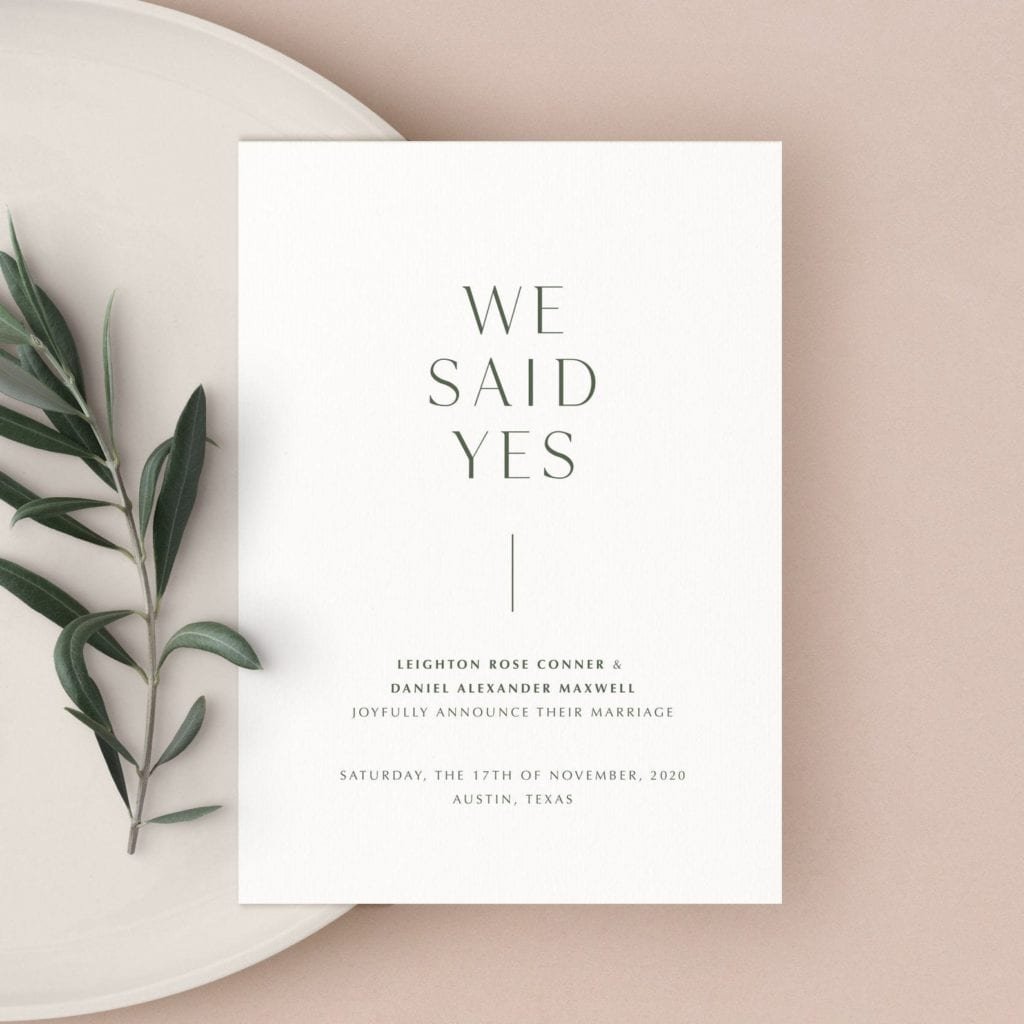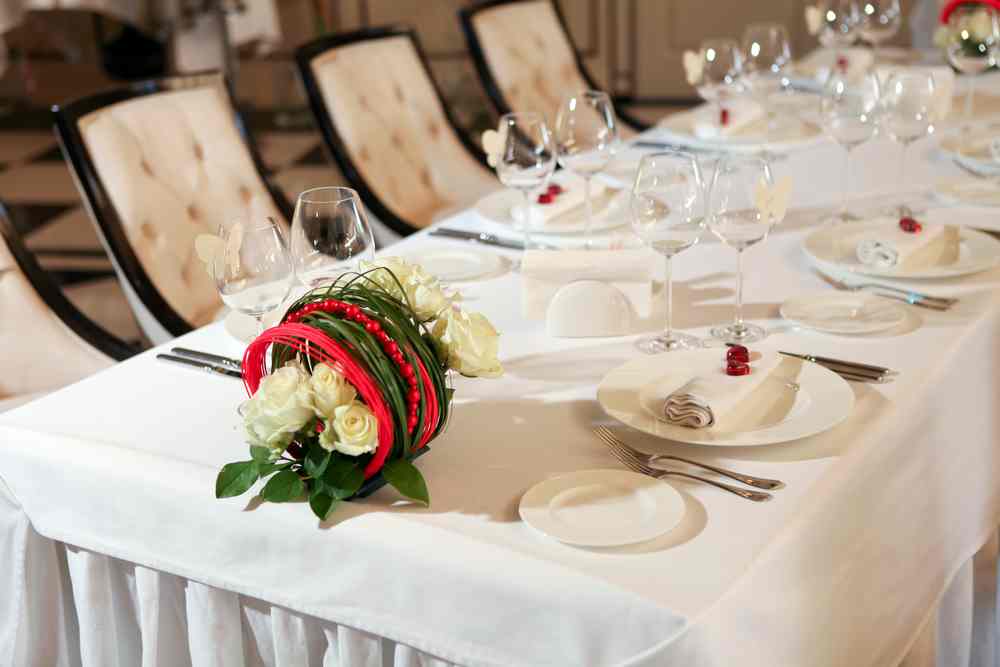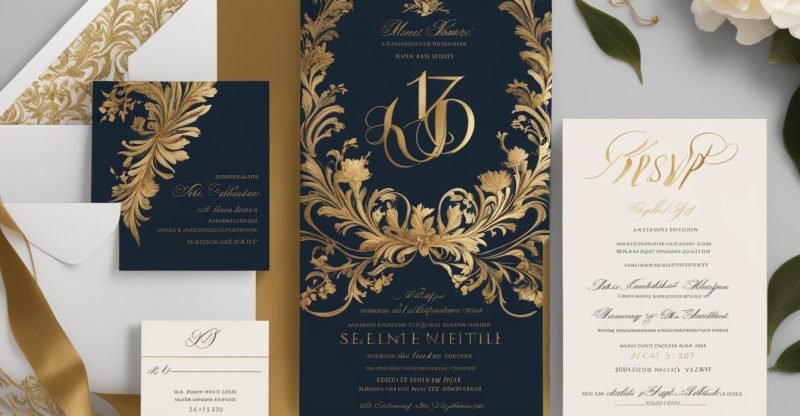RSVP Wording and Etiquette, Including Plus One: Your Guide
RSVP wording and etiquette can often be daunting when planning a wedding. One particular aspect that couples often grapple with is deciding on the plus-one policy. While there are no hard and fast rules, there are some best practices to help you navigate this delicate situation. By considering your budget, the vision for your special day, and the relationships of your guests, you can ensure smooth RSVP responses and avoid any unexpected expenses.
Key Takeaways:
- Consider your budget and wedding vision when deciding on plus-ones
- Typically, plus-ones are given to unmarried guests, close friends, family members in a serious relationship, and out-of-town guests
- Communicate any plus-one limitations or budget constraints to your guests
- Adding extra plus-ones can significantly impact the cost of your wedding
- Take proactive steps like collecting guest names and including spaces for plus-one names on RSVPs
Who Should Get a Plus One at a Wedding?
When it comes to determining who should receive a plus-one at a wedding, there are a few key factors to consider. According to wedding etiquette, certain individuals should be given the option to bring a guest. These include members of the couple’s immediate family, individuals in the wedding party, guests who won’t know many others, and couples who are engaged, live together, or are in a serious or long-term relationship.
However, it’s important to remember that the decision of who gets a plus-one ultimately lies with the couple. They should consider their budget and the overall vision for their special day. Every additional guest can significantly impact the cost of the wedding, so it’s crucial to find a balance between accommodating guests’ preferences and staying within budget constraints.
Who Should Get a Plus One at a Wedding?
| Who Should Get a Plus One | Who Should Not Get a Plus One |
|---|---|
| Members of the immediate family | New couples or those who are casually dating |
| Members of the wedding party | Single guests who know everyone at the wedding |
| Guests who won’t know many others | |
| Couples who are engaged, live together, or are in a serious or long-term relationship |
By carefully considering these factors and open communication with guests, engaged couples can make informed decisions about who should receive a plus-one at their wedding. It’s important to remember that the focus should be on creating a memorable and enjoyable experience for all, while also being mindful of budgetary constraints and logistical considerations.
Who Can Be Left Off the Plus-One List?
Not all wedding guests need to receive a plus-one invitation. If you’re a couple on a budget or have limited space at your venue, it’s important to make thoughtful decisions about who gets a plus-one and who doesn’t. Here are some guidelines to help you navigate this aspect of wedding etiquette:
- New couples or those who are casually dating: If you have guests who are in the early stages of a relationship or are casually dating, it’s acceptable to not include a plus-one for them. They will likely know other guests at the wedding and can enjoy the event without a date.
- Single guests who know everyone: If you have single guests who are close friends or family members, and they know everyone else at the wedding, it’s okay to not extend a plus-one invitation to them. They will feel comfortable and included in the celebration without a date.
It’s important to communicate your plus-one choices to your guests in a polite and considerate manner. You can include a note with your wedding invitation explaining your limitations or budget constraints. For example:
“Dear [Guest’s Name], we are excited to invite you to our wedding celebration. Due to limited space at our venue, we kindly request that you join us without a plus-one. We hope you understand and look forward to celebrating with you!”
Remember, it’s okay to prioritize close friends and family members when deciding who gets a plus-one invitation. Having a clear plan for plus-ones will help you stay within your wedding budget and create a memorable day for you and your guests.
The Cost of Extra Plus-Ones
When it comes to wedding planning, budgeting is a crucial aspect to consider. One area that can significantly impact your wedding expenses is the addition of extra plus-ones. Not only does each additional guest add to the cost of food and beverages, but they may also require accommodations and other services.
To understand the financial implications of extra plus-ones, let’s take a closer look at some key factors. The per-person cost for a wedding guest can vary depending on the type of reception service. For example, a plated dinner may have a higher cost compared to a buffet-style meal. It’s important to consider these costs when determining your budget and the number of plus-ones you can afford to accommodate.
| Expense | Cost |
|---|---|
| Food and Beverages | $X per person |
| Accommodations | $X per room |
| Additional Setup | $X per guest |
In addition to the direct costs, there may also be hidden expenses associated with extra plus-ones. Some venues have strict accommodation guidelines or guest limits, which could result in extra setup requirements or service fees. It’s crucial to communicate these limitations and budget constraints to your guests in order to avoid any unexpected costs.
Table: Wedding Expenses Breakdown
| Expense Category | Percentage of Budget |
|---|---|
| Venue and Catering | 40% |
| Photography and Videography | 15% |
| Flowers and Decorations | 10% |
| Attire and Accessories | 10% |
| Stationery and Invitations | 5% |
| Plus-One Costs | 20% |
Keeping track of your guest count and plus-ones can help you stay within your budget and avoid any unexpected expenses. By accurately planning and managing the number of plus-ones, you can ensure a financially successful and stress-free wedding day.
Proactive Plus-One Planning Tips for Engaged Couples
When it comes to planning your wedding guest list and managing plus-ones, being proactive is key. Here are some helpful tips to ensure a smooth and stress-free RSVP process:
Collect Names and Provide Space for Plus-One Information
Make sure to collect the names of every guest on your invitation list. This will help you keep track of who is invited and who will be attending. Additionally, provide a space on your RSVP cards for the primary guest to write the name of their plus-one, if applicable. This information will be crucial for your seating chart preparation and reception place cards.
Be Prepared to Respond to Plus-One Requests
As you send out your wedding invitations, be prepared for guests to inquire about bringing a plus-one. It’s important to have a clear policy in place and be ready to communicate that to your guests. Consider your budget, venue capacity, and overall vision for the day when making decisions about plus-ones. Politely explain any limitations or budget constraints that may affect the availability of plus-ones.
Consider Seating Arrangements
Seating arrangements can greatly impact the overall experience for your guests. Take the time to strategically plan your seating chart to ensure that everyone feels comfortable and included. Consider the dynamics between guests and try to seat them with people they are familiar with or share similar interests. This will help create a more enjoyable and memorable event for all.
Pay Attention to Invitation Wording and Addressing
When designing your wedding invitations, pay attention to the wording and addressing to maintain a formal and organized atmosphere. Clearly indicate who is invited on the outer envelope and use proper titles and names. Inside the invitation, include instructions for RSVPing and indicate whether guests can bring a plus-one. By being clear and detailed in your invitation, you can avoid confusion and ensure a smooth RSVP process.
| Tip | Details |
|---|---|
| Collect Names | Collect the names of every guest and provide a space for plus-one information on RSVP cards. |
| Respond to Requests | Be prepared to respond to plus-one requests and communicate your policy politely and clearly. |
| Consider Seating Arrangements | Strategically plan your seating chart to ensure all guests feel comfortable and included. |
| Pay Attention to Invitation | Use proper wording and addressing on your invitations to maintain a formal and organized atmosphere. |
Wedding RSVP Card Wording
When it comes to planning your wedding, the RSVP cards play a crucial role in gathering guest responses and important information. The wording of your RSVP cards is essential to ensure clarity and ease for your guests. Here are some tips to help you create the perfect wedding RSVP card:
- Include a space for guests to write their names: This will help you keep track of who has responded and allows for easy identification.
- Indicate attendance status: Provide options for guests to indicate whether they will be attending, not attending, or if they are unsure at the moment.
- Meal preferences, if applicable: If you are offering meal options, make sure to include a section for guests to indicate their preferences, such as vegetarian, gluten-free, or other dietary restrictions.
- Online RSVP option: In today’s digital age, many couples offer the convenience of online RSVP. If you choose to include this option, clearly communicate the instructions and provide a website or email address for guests to respond.
Remember, the wording of your RSVP cards should align with the formality and style of your wedding. Keep it concise and easy to understand, and don’t forget to include a clear RSVP deadline to ensure timely responses. Properly designed and worded RSVP cards will help you gather the necessary information for your wedding preparations.
Quote: “We kindly request your response by [RSVP deadline] to assist us in finalizing our wedding arrangements. We look forward to celebrating with you!”
| RSVP Card Details | Information Required |
|---|---|
| Name | _________ |
| Attendance | ______ Will Attend |
| ______ Will Not Attend | |
| ______ Not Sure Yet | |
| Meal Preference | ______ Vegetarian |
| ______ Gluten-free | |
| ______ Other (Please Specify) |
By following these guidelines, your wedding RSVP cards will effectively collect responses from your guests and help you plan your special day with ease. Remember to proofread your RSVP cards before printing to ensure accuracy and avoid any potential confusion. Happy planning!
How to Address Wedding RSVP Cards
Addressing wedding RSVP cards is an important step in the wedding planning process. Proper etiquette should be followed to create an organized and formal atmosphere for your guests. Here are some guidelines on how to address wedding RSVP cards:
- Pre-address the RSVP envelopes: Take the time to pre-address the RSVP envelopes to make it easy for your guests to respond. Include the return address of the person responsible for collecting the RSVPs. This ensures that the cards will be returned to the correct location.
- Include a stamp on each RSVP envelope: Adding a stamp on each RSVP envelope ensures that your guests won’t have to worry about postage. It also makes it convenient for them to send back their response.
- Use proper address etiquette: When addressing the RSVP cards, be sure to follow proper address etiquette. Include titles and full names for formal invitations, such as Mr. John Smith or Dr. Jane Doe. For more informal invitations, first names can be used.
- Include a clear RSVP deadline: Clearly communicate the RSVP deadline on the invitation and RSVP card. This helps guests understand the timeframe in which they should respond and allows you to plan accordingly.
By following these guidelines, you can ensure that your wedding RSVP cards are addressed correctly and that your guests can easily respond to your invitation. Creating a streamlined process for RSVPs will help you stay organized and ensure that you have an accurate guest count for your special day.
For the Wedding Guest: How to Fill out a Wedding RSVP Card
As a wedding guest, filling out a wedding RSVP card is an important step in the RSVP etiquette process. Here are some tips to help you navigate this task and ensure a seamless response:
Step 1: Include Your Names – When filling out the RSVP card, make sure to include the names of all guests attending. Write your names legibly and accurately to ensure the couple can track your response.
Step 2: Indicate Your Attendance Status – Tick the appropriate box or write a clear “yes” or “no” next to your names to indicate whether or not you will be attending the wedding. This information is crucial for the couple to finalize their guest list and make necessary arrangements.
Step 3: Follow the Instructions – Pay close attention to any specific instructions provided on the RSVP card. If the couple requests additional information, such as meal preferences or song suggestions, feel free to provide these details according to the instructions given.
Step 4: Avoid Adding Uninvited Guests – It’s important to respect the couple’s guest list and not include the names of uninvited guests on the RSVP card. If you have any questions regarding plus-ones or additional guests, reach out to the couple directly for clarification.
By following these simple steps, you can fill out a wedding RSVP card properly and help the couple plan their special day with ease.
Conclusion
RSVP wording and etiquette, including plus one considerations, can be a challenging aspect of wedding planning. While there are no set rules, it’s important to consider the budget and vision of the couple when deciding on plus-ones. Proper communication and organization can help couples navigate the guest list and ensure a smooth and enjoyable wedding day.
By following proper RSVP card wording and addressing etiquette, as well as providing clear instructions for guests, couples can create a formal and organized atmosphere for their wedding. The inclusion of plus-ones should align with the couple’s budget and the relationships of their guests. It’s acceptable to leave off new couples or those who are casually dating, and it’s important to prioritize close friends and family when deciding who gets a plus-one.
Engaged couples can take proactive steps to manage their guest list and plus-ones. Collecting the names of every guest and including a space for the primary guest to write the name of their plus-one on RSVPs is crucial for seating chart preparation and reception place cards. Being prepared to respond to requests for plus-ones and considering seating arrangements can ensure a stress-free and enjoyable wedding for all guests.
Remember, RSVP cards play a crucial role in gathering guest responses and important information. The wording and design of these cards should reflect the formality and style of the wedding, and online RSVP options should be clearly communicated. Properly addressing the RSVP cards and envelopes with pre-addressed and stamped envelopes, including the return address, helps create an organized and formal atmosphere for guests. Following proper RSVP etiquette as a guest is equally important, so be sure to clearly indicate your attendance status and follow any special instructions provided on the RSVP card.
FAQ
What is the etiquette for RSVP wording and etiquette, including plus one considerations?
The RSVP wording and etiquette, including plus one considerations, can vary depending on the formality and style of the wedding. It’s important to communicate clearly with guests, provide options for meal preferences if applicable, and set a clear RSVP deadline. Proper address etiquette and pre-addressed, stamped RSVP envelopes are also essential.
Who should receive a plus one at a wedding?
According to wedding etiquette, plus-ones are typically given to unmarried guests, friends and family in serious relationships, and out-of-town guests. Immediate family members, wedding party members, and couples who are engaged, live together, or are in serious or long-term relationships should also receive a plus-one.
Who can be left off the plus-one list?
It is acceptable to leave off new couples or those who are casually dating, as well as single guests who know everyone at the wedding and won’t need a date to enjoy the event. However, it’s important to communicate any limitations or budget constraints to guests and prioritize close friends and family when deciding who gets a plus-one.
What is the cost of extra plus-ones at a wedding?
Adding extra plus-ones can significantly impact the cost of a wedding. The per-person cost for a wedding guest can vary depending on the type of reception service, and unexpected plus-ones can lead to unaccounted food costs and additional expenses. Some venues may also have accommodation guidelines or guest limits, which could result in extra setup requirements or service fees.
What proactive tips can engaged couples follow for plus-one planning?
Engaged couples can take proactive steps to manage their guest list and plus-ones. Collecting the names of every guest and including a space for the primary guest to write the name of their plus-one on RSVPs can help with seating chart preparation and reception place cards. Couples should also be prepared to respond to requests for plus-ones and consider seating arrangements to ensure a stress-free and enjoyable wedding for all guests.
How should wedding RSVP cards be worded?
The wording of wedding RSVP cards can vary depending on the formality and style of the wedding. It’s important to include a space for guests to write their names, indicate their attendance status, and indicate their meal preferences if applicable. Clear instructions for online RSVP options should also be provided to guests.
How should wedding RSVP cards be addressed?
Wedding RSVP cards should be addressed according to proper etiquette and the formality and theme of the wedding. Pre-addressing and stamping RSVP envelopes, including the return address of the person responsible for collecting the RSVPs, and including a stamp on each RSVP envelope are all important considerations for addressing wedding RSVP cards.
How should wedding guests fill out a wedding RSVP card?
When filling out a wedding RSVP card, guests should include their names and indicate their attendance status. They should also write legibly to ensure the couple can accurately track responses. It’s important for guests to follow the instructions on the RSVP card and not include the names of uninvited guests. If special requests or song suggestions are included on the RSVP card, guests can use this opportunity to add a personal touch to their response.







